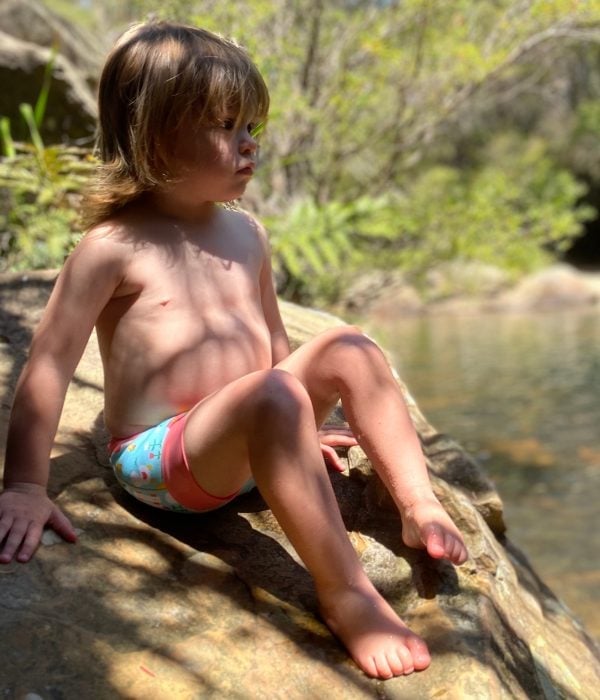
When it comes to parenting, I follow a “not my child, not my business” philosophy.
I understand that a one-size-fits-all approach has never and will never work. Each child, parent, and culture is so different that judging someone for parenting differently is a complete waste of your time and energy. And because of that, I like to keep my mouth shut when I see things that I don’t agree with.
That is, unless it involves posting images on social media. Then I become a dogmatic internet troll.
You see, I’ve spent my entire professional career working as a social media strategist. So when it comes to what parents should and shouldn’t be posting of their children online, I’m annoyingly opinionated.
So annoying, in fact, that I’ve decided it’s time we formalise what is and isn’t appropriate to share of our children online and burn the new law (yes, I’m talking to you ScoMo) into public consciousness.
Some of our favourite celebrities on parenting. Post continues below.
Before I attempt to do that, we have to agree on a few basics.


Top Comments
I also think, as your kids gets older and understand more about social media, ask permission before you post any picture of them and respect their wishes if they say no.
Also, don't post photos of your kids topless and be careful of anything you post with your young kids in it. There are predators who look for this sort of thing and share your photos with other predators. I recently got a page taken down recently of a man doing just this, openly on Facebook. He'd taken personal, yet public, Instagram and Facebook photos and photos from modelling agencies and dance school pages and he and his gross mates were commenting on them, even though they were all pretty innocent snaps. After contacting parents, agencies and the dance schools (who were all horrified and shocked that this had happened to them) and making multiple reports, the page was taken down. But not before predators had used these kids' photos for their own gratification. So be careful.
Side note: Can people also stop posting pics of their kids covered in dribble and food? I know you think it's cute that he put his bowl on his head and got custard all over him, but the custard mixed with spit and snot all over his grubby face makes the rest of us want to barf.
Thing is, children don't have the capacity to consent to these kinds of things. I agree that their autonomy should be respected, but it's indefensible to say "well, I asked my nine year old's permission if I could post pictures of her on the internet and she said yes so it's OK". She's nine. She can't consent to a decision which has such long-reaching implications for her. A lot of kids would be thrilled to be "famous" but not understand the lasting consequences of being so. Really, it's up to parents to be parents and put their kids first, not some ambition to get money or insta-fame (or just personal validation through "likes").
The more I think about this issue, the more ridiculous it is. For those of us old enough to remember a world with only film cameras, we would never have thought to show our family albums to random strangers we met on the street. Imagine if some guy we never knew had a look at a photo album and asked, "say, would you mind if I borrowed the negatives of the pictures of your children? I'd like to take some personal copies. And it would be great if I could borrow the video tapes of your family holiday too - I'd like to dub those as well so I can watch them again later". But this is EXACTLY what we are enabling when parents put pictures of their children online for public consumption. There is a way to show pics to your family and friends with private settings on your social media - there is just no excuse or reason for public sharing. The internet is forever, but parents don't seem to care.
p.s Totally agree on pictures of children covered in secretions and/or food. It's gross - I physically recoil whenever my sister-in-law sends "cute" pictures of my niece plastered in whatever it is she tried to eat.
100% agree!